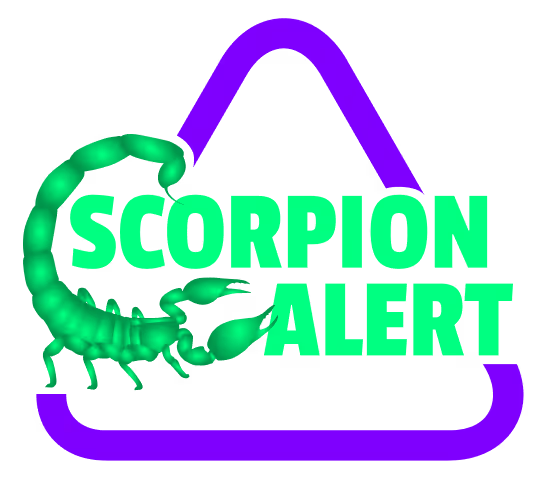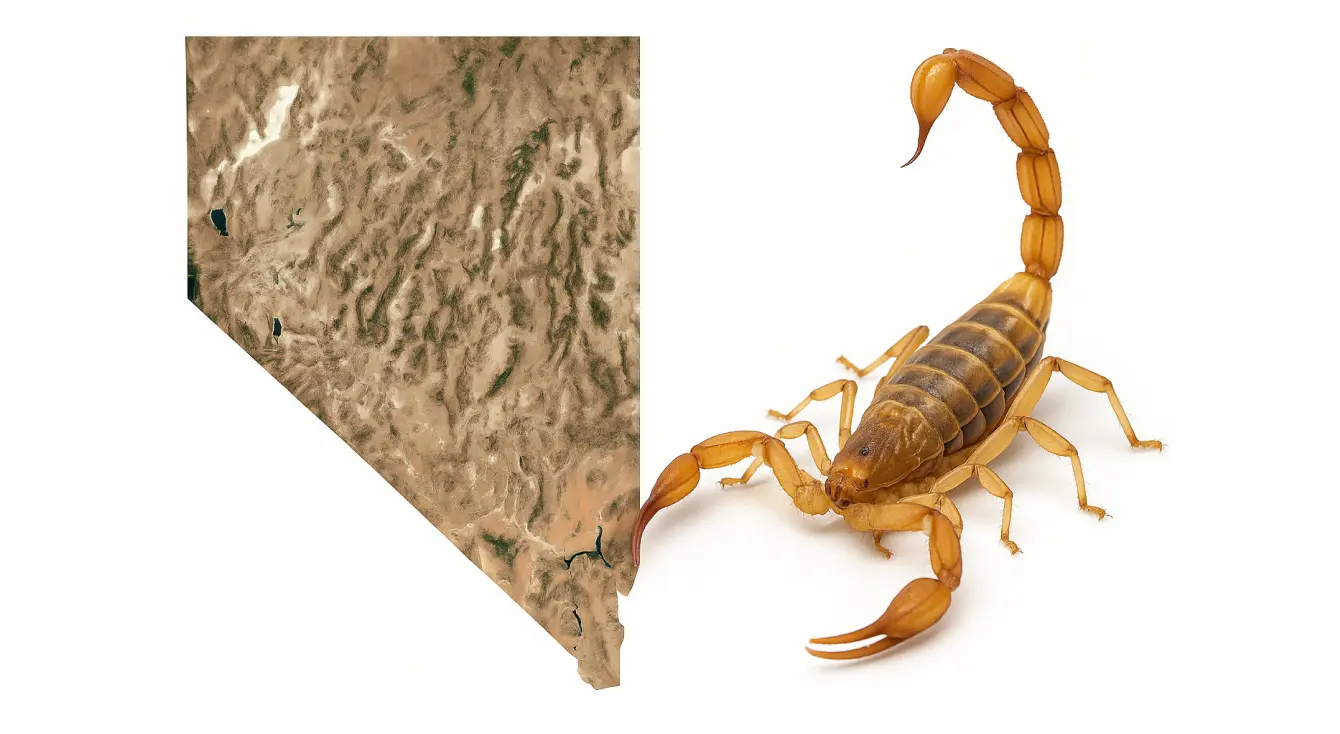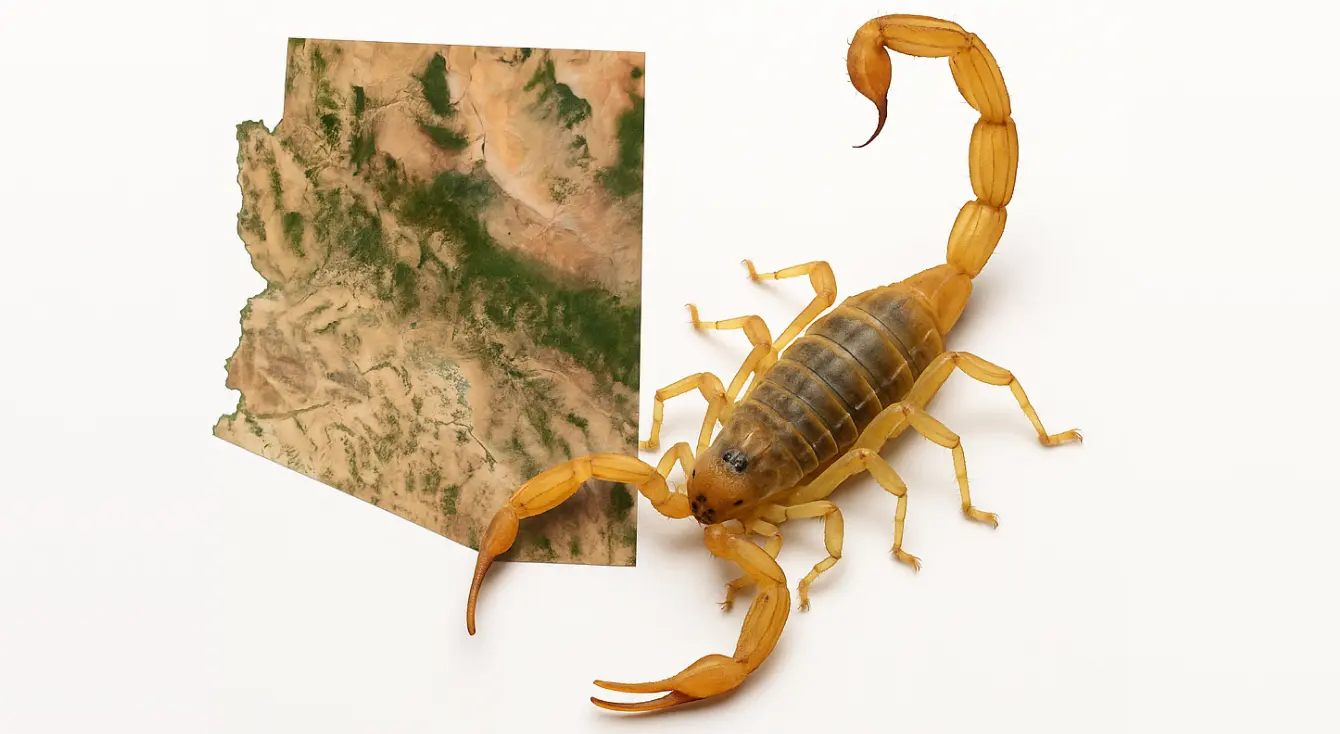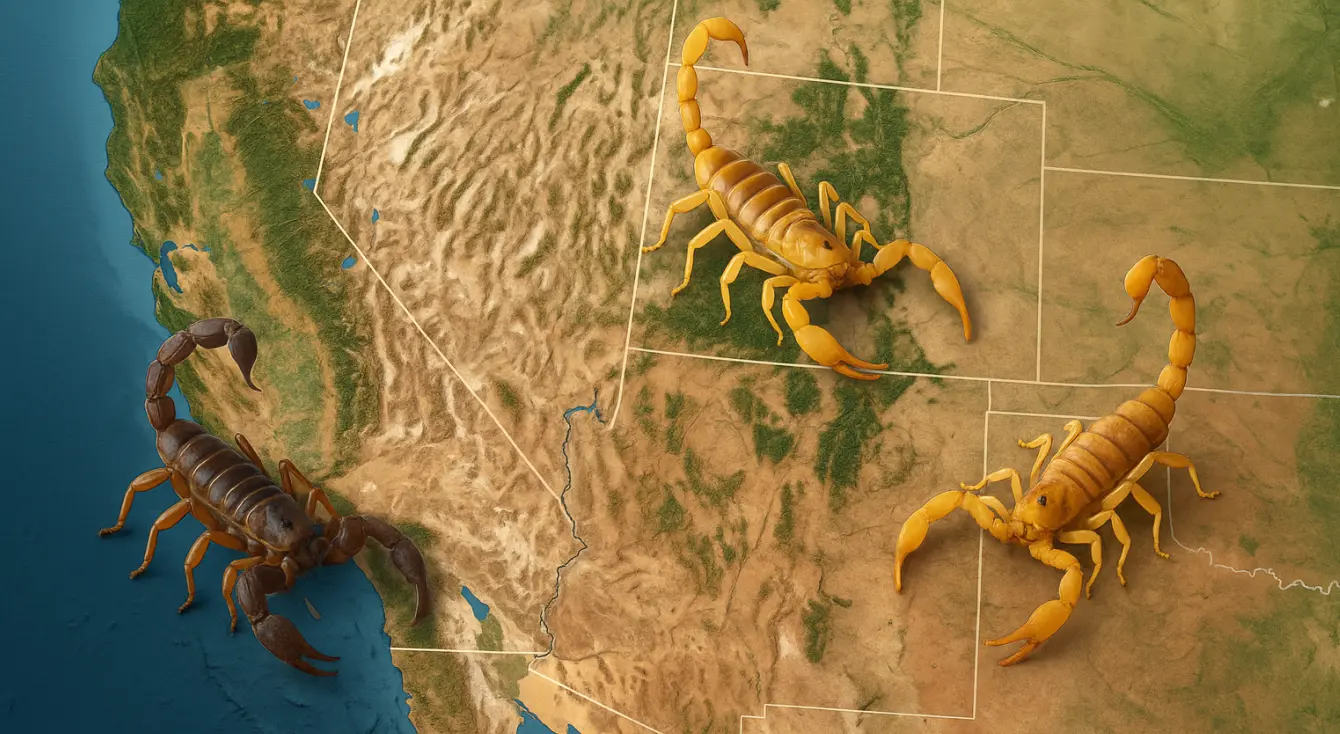If you live in Nevada—especially southern areas like Las Vegas, Henderson, or Pahrump—you’re no stranger to scorpions. Nevada’s hot, dry climate and rocky terrain make it a perfect habitat for several species. While most scorpions in the state aren’t dangerous, they can still deliver a painful sting and occasionally wander into homes.
Here are the most common scorpions you’re likely to see in Nevada:
1. Arizona Bark Scorpion (Centruroides sculpturatus)
Though more famous in Arizona, the bark scorpion is also well-established in southern Nevada, especially in Clark County. It’s the only dangerously venomous scorpion in North America.
Key traits:
- Pale yellow-tan color
- Slender body and tail
- Thin pincers
- Excellent climber—often found on walls, ceilings, and in shoes
Venom risk: High. Stings can cause severe pain, numbness, or breathing problems. Children and the elderly are especially vulnerable.
2. Stripedtail Scorpion (Paravaejovis spinigerus)
Sometimes called the "common desert scorpion," this species is found throughout Nevada, including urban and desert areas.
Key traits:
- Brown to tan with two subtle stripes down the back
- Thick pincers and chunky body
- Usually ground-dwelling
Venom risk: Low. The sting is painful but not medically serious.
3. Northern Scorpion (Paruroctonus boreus)
More commonly found in northern Nevada and higher elevations, this cold-tolerant species prefers rocky, semi-arid terrain.
Key traits:
- Smaller in size (about 1.5 inches)
- Light brown or tan
- Often found under rocks or logs
Venom risk: Low. Stings are mild and rarely require treatment.
4. Giant Hairy Scorpion (Hadrurus arizonensis)
While less common, this massive species can be found in parts of southern Nevada. It's the largest scorpion in North America.
Key traits:
- Yellow body with a dark top
- Covered in fine brown hairs
- Can grow over 5 inches long
Venom risk: Moderate. The sting is painful but not life-threatening.
Where to Watch for Them
Nevada scorpions prefer tight, cool, and dark spaces. Expect to find them:
- Along baseboards and in closet corners
- Inside shoes, bags, or bedding
- Beneath rocks, concrete, and yard debris
- In garages and sheds
How to Stay Protected
- Seal cracks in your home’s foundation and around doors/windows
- Eliminate clutter and stored items along walls
- Use Scorpion Detectors in bedrooms, closets, and garages
- Sweep with a UV flashlight to catch them glowing at night
- Keep landscaping tidy and away from your home’s perimeter
Scorpions are part of life in Nevada—but they don’t have to be part of your living space. With proper detection, smart prevention, and a little local knowledge, you can keep your home scorpion-free.



.webp)


